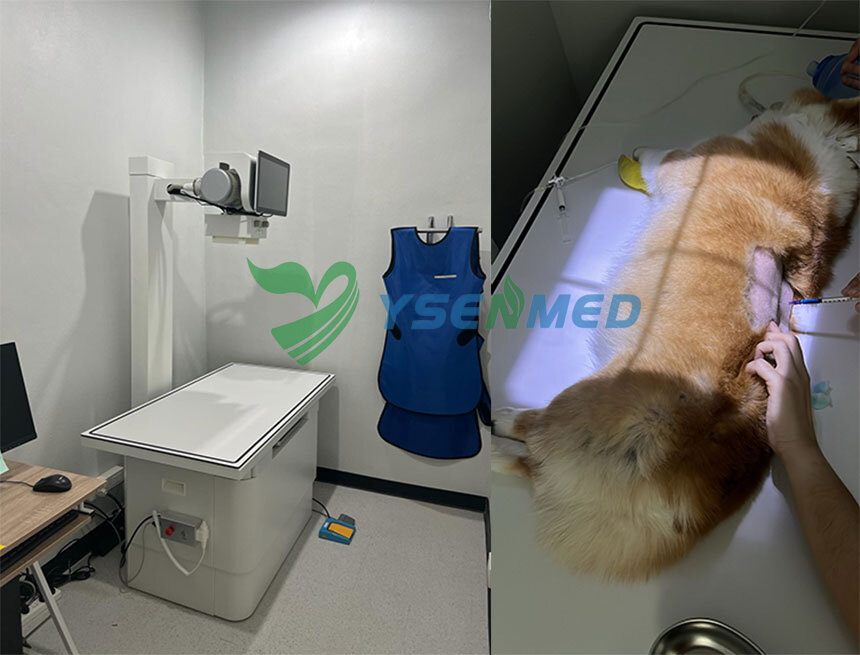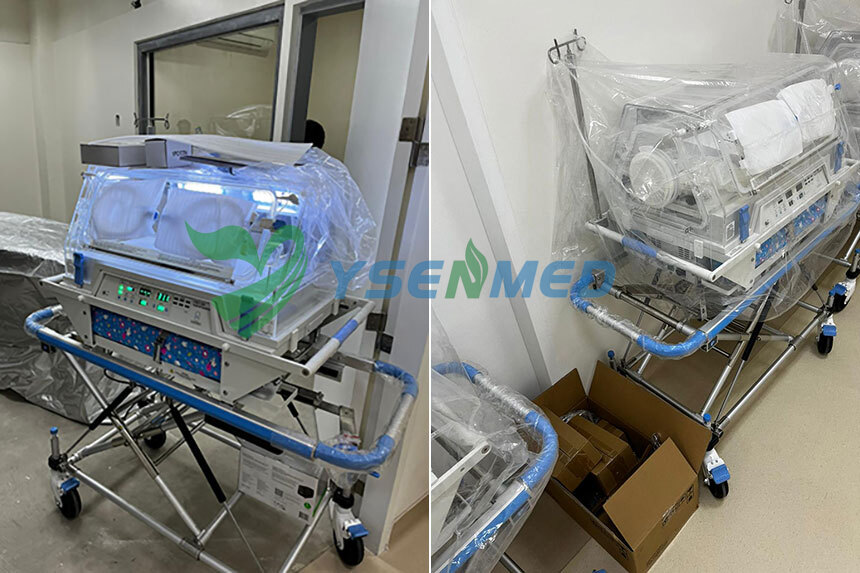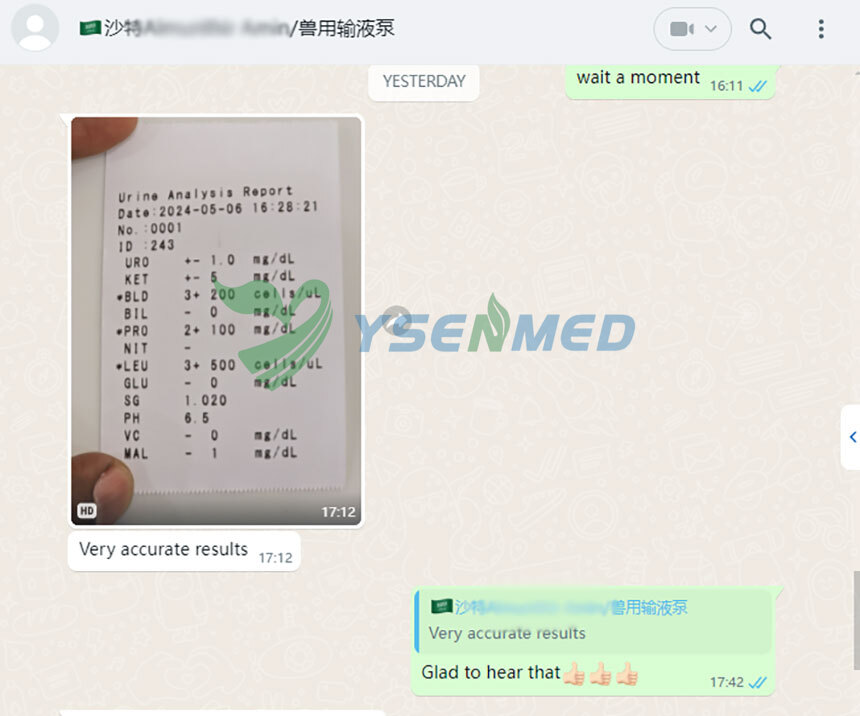Introduction:
Introduce the relevance of electrolyte balance in animals and the critical role of electrolyte analyzers in veterinary medicine. Emphasize the importance of accurate and timely electrolyte monitoring for the health and well-being of animals.
Section 1: Importance of Electrolyte Balance in Animals:
Discuss the essential role of electrolytes in maintaining physiological balance in animals. Highlight the impact of electrolyte imbalances on animal health, emphasizing the significance of proper electrolyte monitoring in veterinary care.
Section 2: Challenges in Veterinary Electrolyte Management:
Explore the unique challenges in managing electrolyte balance in animals. Discuss factors such as species-specific variations, diverse dietary needs, and the potential for acute electrolyte imbalances in veterinary patients.
Section 3: Significance of Electrolyte Monitoring in Veterinary Medicine:
Examine the importance of monitoring electrolyte levels in veterinary medicine. Discuss the implications of electrolyte imbalances in animals, potential complications, and the role of electrolyte analyzers in facilitating effective veterinary interventions.
Section 4: Introduction to Electrolyte Analyzers for Veterinary Use:
Provide an overview of electrolyte analyzers designed for veterinary use. Differentiate between laboratory-based analyzers and portable/handheld devices, and discuss their applications in various veterinary settings.
Section 5: Key Electrolytes in Veterinary Medicine:
Examine the key electrolytes measured by analyzers in veterinary patients. Discuss the significance of sodium, potassium, chloride, bicarbonate, calcium, and magnesium in the context of animal health and veterinary care.
Section 6: Techniques Used in Veterinary Electrolyte Analysis:
Explore the techniques employed by electrolyte analyzers for accurate measurements in animals. Discuss ion-selective electrodes, colorimetric methods, and other innovative technologies, highlighting their applicability in veterinary settings.
Section 7: Applications in Large Animal Medicine:
Discuss the specific applications of electrolyte analyzers in large animal medicine. Explore how these analyzers contribute to monitoring electrolyte levels in livestock, horses, and other large animals, aiding in the early detection of imbalances.
Section 8: Electrolyte Monitoring in Small Animal Medicine:
Examine the role of electrolyte analyzers in small animal medicine. Discuss their applications in monitoring electrolyte levels in dogs, cats, and other small animals, especially in critical care and emergency situations.
Section 9: Electrolyte Analysis in Exotic and Zoo Animals:
Explore the challenges and applications of electrolyte analysis in exotic and zoo animals. Discuss the unique considerations when monitoring electrolyte balance in diverse species housed in zoological settings.
Section 10: Electrolyte Monitoring in Avian Medicine:
Discuss the applications of electrolyte analyzers in avian medicine. Explore their role in assessing electrolyte levels in birds, addressing the unique physiological characteristics and health considerations of avian patients.
Section 11: Electrolyte Analysis in Aquatic Veterinary Medicine:
Examine the applications of electrolyte analyzers in aquatic veterinary medicine. Discuss their role in monitoring electrolyte levels in fish and other aquatic species, addressing the specific challenges of veterinary care in aquatic environments.
Section 12: Electrolyte Monitoring in Equine Medicine:
Explore the applications of electrolyte analyzers in equine medicine. Discuss their role in monitoring electrolyte levels in horses, addressing the unique nutritional and physiological considerations of equine patients.
Section 13: Management of Electrolyte Imbalances in Veterinary Nephrology:
Discuss the applications of electrolyte analyzers in veterinary nephrology. Explore their role in monitoring and managing electrolyte imbalances associated with kidney conditions in animals.
Section 14: Veterinary Electrolyte Monitoring in Critical Care:
Examine the role of electrolyte analyzers in critical care settings for veterinary patients. Discuss their applications in emergency departments and intensive care units, emphasizing rapid and accurate assessments for critically ill animals.
Section 15: Electrolyte Monitoring in Veterinary Endocrinology:
Discuss the relevance of electrolyte analyzers in veterinary endocrinology. Explore their applications in assessing electrolyte levels in animals with endocrine disorders, such as diabetes and adrenal insufficiency.
Section 16: Electrolyte Balance in Veterinary Cardiology:
Explore the applications of electrolyte analyzers in veterinary cardiology. Discuss their role in assessing electrolyte levels in animals with cardiac conditions, such as heart failure and arrhythmias.
Section 17: Veterinary Electrolyte Monitoring in Oncology:
Discuss the applications of electrolyte analyzers in veterinary oncology. Explore their role in monitoring and managing electrolyte imbalances in animals undergoing cancer treatments, such as chemotherapy.
Section 18: Electrolyte Imbalances in Veterinary Infectious Diseases:
Examine the relevance of electrolyte analyzers in veterinary infectious diseases. Discuss their applications in assessing and managing electrolyte imbalances in animals with infectious conditions, such as bacterial or viral infections.
Section 19: Electrolyte Monitoring in Veterinary Diabetes Management:
Explore the applications of electrolyte analyzers in veterinary diabetes management. Discuss their role in assessing electrolyte levels in animals with diabetes, especially during episodes of diabetic ketoacidosis.
Section 20: Challenges and Considerations in Veterinary Electrolyte Analysis:
Address challenges and considerations associated with using electrolyte analyzers in veterinary settings. Discuss factors such as species-specific variations, sample collection, and the need for accurate reference ranges in different animal species.
Section 21: Future Trends and Innovations in Veterinary Electrolyte Analysis:
Explore future trends and innovations in veterinary electrolyte analysis. Discuss ongoing research, potential advancements, and the evolving landscape of technologies in veterinary healthcare.
Section 22: Integration of Veterinary Electrolyte Analysis into Electronic Health Records (EHRs):
Discuss the integration of veterinary electrolyte analysis results into electronic health records (EHRs). Explore how seamless connectivity contributes to improved communication and collaboration among veterinary healthcare providers.
Section 23: Economic Considerations and Cost-Effectiveness in Veterinary Electrolyte Analysis:
Explore the economic considerations of implementing electrolyte analysis in veterinary medicine. Discuss its cost-effectiveness compared to central laboratory testing, potential savings in veterinary expenditures, and the economic benefits of early identification and intervention.
Section 24: Global Accessibility and Challenges in Veterinary Electrolyte Analysis:
Examine the global accessibility of veterinary
electrolyte analyzers. Discuss challenges in resource-limited settings and initiatives aimed at improving access to this technology on a global scale, contributing to more equitable veterinary healthcare.
Section 25: Veterinary Patient Education and Owner Involvement:
Highlight the importance of owner education and involvement in veterinary electrolyte analysis. Discuss how informed pet owners can actively participate in managing their animal's health, understanding the implications of electrolyte imbalances, and collaborating with veterinary professionals for better outcomes.




